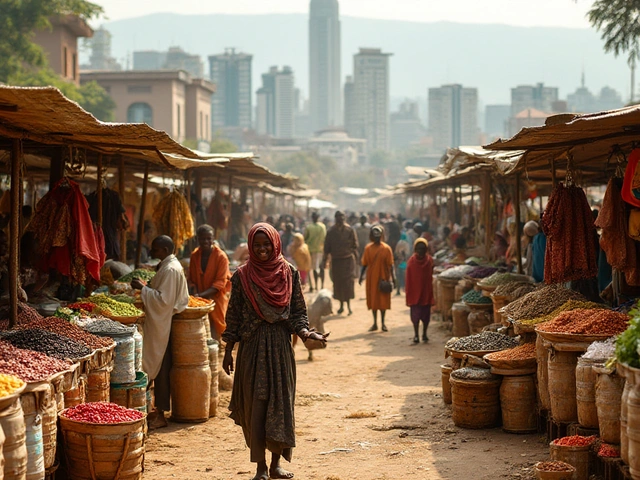Ethiopian Hardships: Facing Economic Challenges, Salaries, and Job Market Realities
Think hardships in Ethiopia just mean poverty? The story is way more layered than that. From salary gaps to housing headaches, people in Ethiopia navigate a real maze to get ahead. What does making a living here really look like, and how do folks manage to push through the economic bumps?
Start with wages. Average income in Ethiopia is low compared to many countries, and the difference between the highest and lowest earners feels massive. While some entrepreneurs and professionals break into millionaire status, most people are hustling hard just to cover daily expenses. Job seekers often face tough competition in a crowded market, where formal employment can be hard to find and salaries don’t always go far, especially in cities like Addis Ababa.
Cost of living isn’t a side note—it’s front and center for everyone. House rent keeps climbing, especially in popular neighborhoods, and affordable options can take months to hunt down. Utilities, groceries, and transport all chip away at salaries, so it’s no surprise many families juggle multiple jobs or side gigs, including online work and small-scale trade. If you’re new to the scene, you’ll notice locals are experts at stretching every birr to make it last through the month.
Want to build a career? It’s a balancing act with obstacles at every turn. Job openings are growing in sectors like tech, agriculture, and construction—but so is competition. Having the right skills is key. Amharic might be the official language, but knowing some Oromo or Tigrinya can open up surprising doors, especially outside the capital. For folks considering moving for work, safety and stability of life in Addis Ababa is a common concern. Most locals will tell you that, while the city can be chaotic and expensive, it’s got the best job prospects and the biggest networks.
What about doing business or investing? Ethiopia is full of opportunities, but getting started takes patience and a sharp eye. There’s red tape, infrastructure issues, and sometimes, unpredictable government policies. Foreign investors often need local partners to really succeed. But those who crack the system—especially in industries like manufacturing and agriculture—can see solid returns.
Of course, traditional practices and cultural expectations shape the career landscape too. Some customs still limit women’s opportunities, and harmful practices in society mean certain groups have a tougher climb. Breaking through these barriers isn’t quick, but public awareness and legal reforms are slowly making a difference. If you’re planning on working in the public sector, especially teaching or healthcare, brace for modest pay but know that these roles are highly respected.
Tough job markets, tight budgets, and social hurdles—Ethiopia’s hardships are real. But, every day, people here show fierce resilience, looking for creative ways to build a better future. If you’re trying to get a job, invest, or just survive here, understanding these challenges will help you navigate like a local.





